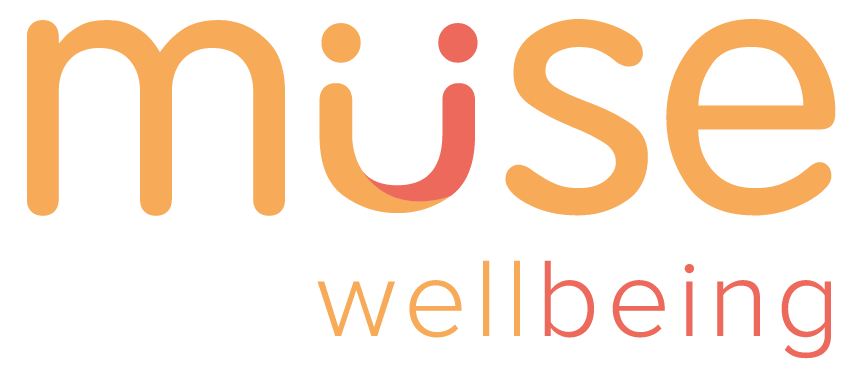RSE Year 6 Curriculum Guide

David is the Muse Wellbeing director and lead curriculum developer. His Main passions include education, surfing and travelling.

George is an international school teacher based in Asia. A passionate language learner and polyglot, he thrives in diverse classrooms.
RSE Year 6 Curriculum Guide
As teachers, securing a solid understanding of the rationale behind the teaching of Relationships and Sex Education (RSE) in Year 6 is vital for preparing students well for the emotional and physical changes and challenges they will encounter during their teen years. This curriculum encompasses both the changes in their own bodies and the multifaceted dynamics of growth throughout their school lives.
With the UK government having recently mandated the teaching of RSE as a compulsory part of the curriculum, schools must provide comprehensive, age-appropriate and relevant lessons that cover essential topics. In this blog, Muse outlines the key components of the RSE curriculum for Year 6, effective teaching strategies and the importance of RSE for students on the cusp of adolescence.
Understanding RSE in Year 6
The goal of RSE in primary school is to provide students with the necessary knowledge and skills for forming healthy relationships and making informed decisions about their bodies and personal lives. Teaching students RSE in Year 6 is crucial as they are fast approaching the critical transition into secondary education, where they will encounter unfamiliar, often unspoken, complex social dynamics and personal challenges.
The Year 6 RSE curriculum covers various interconnected themes, including understanding body image, consent, healthy relationships and the importance of emotional health. Schools are encouraged to strive towards the creation of a safe and supportive environment for discussions, ensuring that students feel comfortable exploring sensitive topics. An open environment fosters open communication and, supplied with the vocabulary and conceptual understanding to recognise problems, students will find it easier to ask questions and express their thoughts without fear of judgement.
Key Topics Covered in the Year 6 RSE Curriculum
The Year 6 RSE curriculum includes many important topics designed to prepare students for the challenges of adolescence. With the foundations having been laid in previous years, Year 6 RSE builds on these topics with more age-appropriate and relevant content. Students will have been introduced to basic concepts related to relationships, emotions and personal health in previous years. In Year 6, many or possibly most children will have already begun to experience some of the physical and emotional changes brought on by puberty, making this an opportune time to delve deeper into these subjects.
Research indicates that children in the UK typically begin showing signs of puberty at around 9 to 14 years, with girls typically starting earlier than boys. For more detailed insights into the onset of puberty, the NHS provides comprehensive resources regarding its implications, what parents and educators can expect and how they can help to guide their children through this stage of their life. This makes Year 6 a critical time for reinforcing knowledge about reproductive health, emotional wellbeing and the importance of consent.
The key topics of the RSE curriculum in Year 6 should include…
Reproductive Anatomy: Students gain a fundamental understanding of their bodies via learning about the male and female reproductive systems. This includes being able to identify and understand the scientific names and functions of the main reproductive organs. Such foundational knowledge is crucial for demystifying puberty, promoting body positivity, reducing potential embarrassment, opening the space for them to talk about any issues and ensuring that students are informed about their development.
Consent and Respect: A firm understanding of consent forms a fundamental component of the RSE curriculum. Lessons about consent cover its meaning in various relationships, emphasising the importance of respect for themselves and others. For example, discussions on this topic can include scenarios where students practise saying “no” in uncomfortable situations, acting as a form of assertiveness training which helps children to establish personal boundaries. As students transition into adolescence, this knowledge and training is essential for forming healthy and respectful relationships.
Emotional Wellbeing: The RSE curriculum emphasises the importance of emotional health alongside physical health. Relevant topics crucial for navigating puberty and adolescence are explored, such as coping with change, self-care strategies and resilience. Lessons may involve discussions on managing feelings and anxieties related to personal changes, providing students with valuable tools to effectively understand and resolve in a healthy way any difficult emotional experiences they have or that may arise.
Healthy Relationships: Students learn about what makes a positive relationship, including the dynamics of friendships and various family structures. Through this exploration and using examples from a wide range of circumstances and situations, students can develop a high level of empathy and respect for diversity. As a result, with students integrating this understanding into their daily lives, they can bring about a more inclusive and supportive school environment.
Digital Awareness: In today’s digital age, understanding and acquiring an ability to avoid the risks associated with online interactions, especially for children, is critical. The PSE curriculum covers topics such as safe online behaviour, the importance of privacy and recognising and avoiding potentially harmful situations in digital spaces. By addressing these issues and taking onboard the digital know-how, students are better equipped to safely navigate the complexities of the online world.
Body Image, Self-esteem and Self-Care: In order to grow up healthy and confident, students must develop a positive conception of themselves. RSE in Year 6 provides lessons on guiding students towards this end. Lesson discussions focus on how media and peer influences affect one’s body image, helping students to integrate healthy habits in their daily life and follow self-acceptance. Encouraging students to appreciate and embrace their uniqueness, as well as fostering resilience against negative societal pressures are vital components of the RSE curriculum.
The RSE curriculum also should teach students about the importance of more focused self-care and personal hygiene during puberty, including how to manage changes in their body and maintain cleanliness. These lessons empower students to understand the physical changes they are experiencing and the role of hygiene in maintaining their health and confidence.
RSE Year 6 with Muse Wellbeing
Muse Wellbeing’s RSE curriculum provides teachers with structured lessons that cover essential topics in an engaging manner for all their students. Each Year 6 RSE lesson is designed to foster a supportive learning environment where students feel safe and are supplied with the necessary capability to explore sensitive subjects.
For instance, one key lesson titled “Our Reproductive Anatomy” introduces to students the main reproductive organs of both males and females, using diagrams and interactive discussions to demystify and acquaint students with essential knowledge of biological processes. This foundational knowledge prepares students for the physical changes they will encounter during puberty and promotes body positivity.
Another important topic is “Consent, Respect and FGM” which addresses the legal and ethical aspects of consent. Students learn about the importance of respect in relationships and discuss the implications of Female Genital Mutilation (FGM), including raising awareness of its status as a crime in the UK. This lesson empowers students with knowledge about their rights and encourages them to speak up against practices that violate these rights.
The lesson “Coping and Self-Care” introduces to students various strategies on exploring and managing their emotions, particularly during times of personal change and transition. They learn that their feelings can change in intensity over time and take part in exercises where they practise identifying their emotions, fostering emotional intelligence and resilience. Additionally, lessons on “Healthy Relationships” cover the characteristics of positive relationships, helping students understand the dynamics of friendship and diverse family structures.
Muse Wellbeing’s lessons also integrate practical activities covering the entire curriculum, such as role-playing scenarios where students practise saying “no” to friends in uncomfortable situations and exploring the concept of “Positive Body Image”. By recognising how media and social influences can impact their self-esteem, students learn to appreciate their uniqueness and develop a healthy conception of the self.
Final Thoughts
Teaching RSE in Year 6 is an essential component of the school curriculum for guiding students towards preparing for change and the complexities of adolescence. Integrating comprehensive lessons on relationships, consent, emotional wellbeing and body image into the Year 6 curriculum, schools provide students with the tools they need to thrive during the next stage of their lives. With emphasis on open communication, respect and empathy, schools can foster compassionate students and create a positive learning environment that cultivates growth and resilience.
Educators embracing the importance of RSE lay the foundation for a generation of informed, respectful and confident individuals. Schools must continue to prioritise RSE as a core part of the curriculum, ensuring that students are well-equipped to navigate their future with assurance.
Muse Wellbeing
Subscribe for RSHE & Wellbeing Updates & Learning Resources

Copyright © 2026 Muse | All Rights Reserved.
Would you like to logout of Muse Wellbeing?


